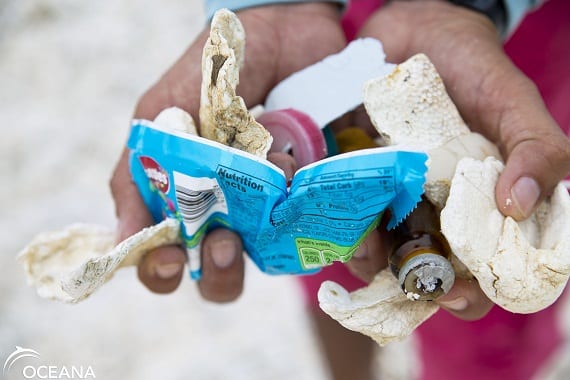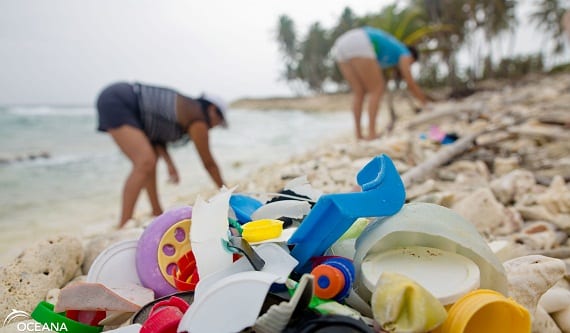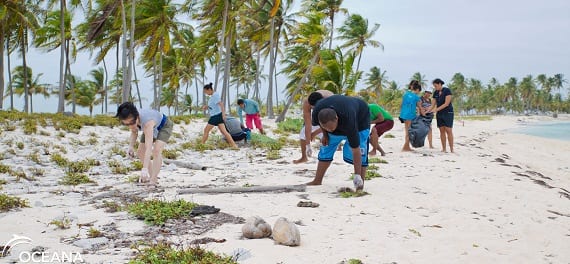September 19, 2014
Photos: On International Coastal Cleanup Day, Five Ways to Help the Oceans
Marine debris has become a major issue facing the oceans today. It’s estimated that 10 to 20 million tons of plastic trash make their way to the ocean each year through a number of pathways, like litter, runoff, and direct dumping. In a recent study, scientists found plastic debris in 88 percent of ocean surface water samples. This debris poses a huge risk to marine animals, who can confuse plastics for food and choke and die, or accumulate tiny little pieces of microplastics in their stomachs.
Despite these grim facts, there are steps everyone can take action to help reverse this fate for the oceans. This weekend, the Ocean Conservancy is hosting one of the biggest actions volunteers can participate in to reduce plastic waste: the International Coastal Cleanup on September 20. Oceana in Belize is also hosting their own cleanup on Saturday, September 27, and you can find a cleanup near you on this map.

Oceana in Belize picking up trash on World Oceans Day this past summer. (Photo: Alexander Ellis / Oceana in Belize)

Oceana in Belize picking up trash on World Oceans Day this past summer. (Photo: Alexander Ellis / Oceana in Belize)
If you can’t attend an official cleanup event this year, here are five steps you can take to help the oceans on your own time:
1. Host your own cleanup day! If you’re unable to attend one of the associated events, you can always head to the beach and have your own cleanup session. Try to remember to wear protective gears like gloves to protect you from sharp and dirty objects.
2. Reduce your plastic waste consumption. Instead of plastic water bottles, grocery bags, and straws, invest in a few reusable ones! Many of these items now come in decorative designs, so you can use these items in style.
3. Always properly dispose of fishing gear. Birds and other marine life can easily become entangled in fishing nets and monofilaments, as well as digest fishing hooks. It’s important to properly dispose of these items, or even better, reuse them! Many beaches have monofilament recycling stations where you can easily dispose of your fishing line.
4. Spread the word. Some folks that don’t live near the coast may not be aware of the Coastal Cleanup, or be familiar with the impacts of trash on marine life. Informing others about these risks can help more people move towards reducing their plastic consumption. Even if they don’t live near the coast, every little bit helps the environment!
5. Join Oceana in protecting the oceans! Oceana strives to protect marine ecosystems and marine life through a variety of campaigns, like advocating for sustainable fisheries and marine protected areas. By joining Oceana, you can help to protect millions of square miles of ocean habitat and marine life.

Oceana in Belize picking up trash on World Oceans Day this past summer. (Photo: Alexander Ellis / Oceana in Belize)
MOST RECENT
September 3, 2025
Air Raid Panic to Informed Skies and Seas: The National Weather Service in a Nutshell
August 29, 2025
August 22, 2025
Corals, Community, and Celebration: Oceana Goes to Salmonfest!



